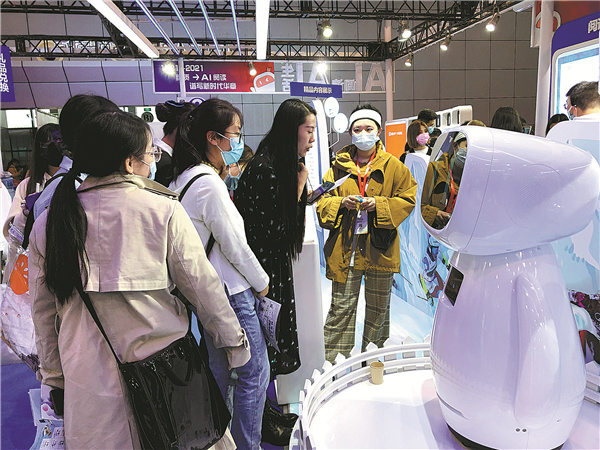

After 20 years of development, Chinese online literature has become one of the pillar resources of pop culture consumption in China. While it began with prevalent themes such as romance, fantasy, time travel and history, in recent years, online literature has seen a gradual shift toward realism, which marks a new page in the development of the medium.
"Judging from either the number of writers, or the quality of their writing, or the reader base and the education level therein, online literature has topped the reading market in China," He Changzai, a popular online writer, said at the recent launch ceremony of the China Online Literature+ Conference 2021 in Beijing.
A report by the China Audio-Video and Digital Publishing Association shows that, in 2020, the market value of Chinese online literature reached nearly 25 billion yuan ($3.9 billion) with a domestic reader base of 460 million people, of which around 7.58 million are active, daily users. By 2020, more than 21 million online writers had created approximately 29 million works.
However, while online literature is incredibly popular in China, it does not mean that it has become the mainstream, he said, adding that online literature should focus more on reality.

"In real life, there are so many stories of ordinary people's heroism that are worth recording and extolling. Realism and science fiction both require real-life experience and profound thinking about society and the world," He said.
To write quality works, online writers need to immerse themselves in real life to get inspiration for vivid stories with realistic, believable characters, he added.
Liu Xiahui, who writes novels about traditional Chinese medicine, tai chi, the authentication and conservation of cultural relics and the legends of Chinese dragons, shared his experience in finding inspiration from reality at a forum on online literature creation.
"I walked around to find inspiration for my new books, but failed until I went back to my hometown and saw the native people, working conscientiously-bamboo-weaving craftsmen, smiths, carpenters and the woman making steamed stuffed buns. They are good at their work, but they lead simple lives and are not good at communicating with people. They only concentrate on the work at hand," he said.